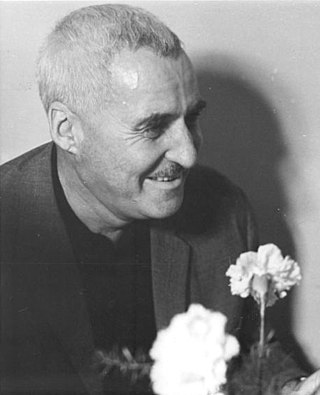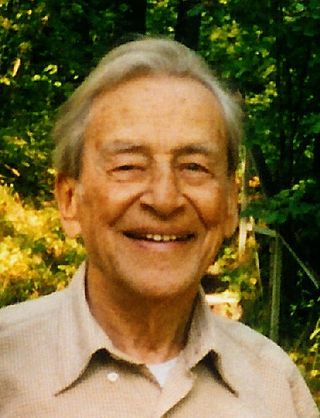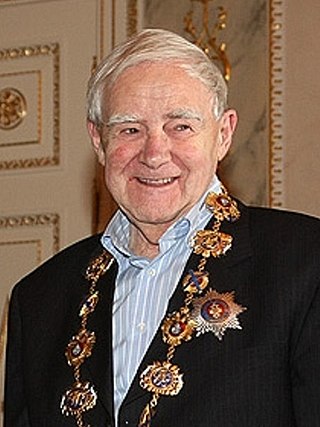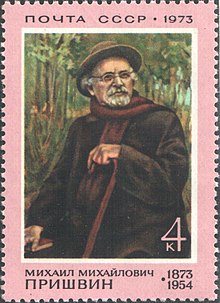
Mikhail Afanasyevich Bulgakov was a Russian, later Soviet writer, medical doctor, and playwright active in the first half of the 20th century. He is best known for his novel The Master and Margarita, published posthumously, which has been called one of the masterpieces of the 20th century.

Russian literature refers to the literature of Russia, its émigrés, and to Russian-language literature. Major contributors to Russian literature, as well as English for instance, are authors of different ethnic origins, including bilingual writers, such as Kyrgyz novelist Chinghiz Aitmatov. At the same time, Russian-language literature does not include works by authors from the Russian Federation who write exclusively or primarily in the native languages of the indigenous non-Russian ethnic groups in Russia, thus the famous Dagestani poet Rasul Gamzatov is omitted.

Józef Mackiewicz was a Polish writer, novelist and political commentator; best known for his documentary novels Nie trzeba głośno mówić, and Droga donikąd. He staunchly opposed communism, referring to himself as an "anticommunist by nationality". Mackiewicz died in exile. His older brother Stanisław Mackiewicz was also a writer.

Lake Pleshcheyevo is a glacial lake in Yaroslavl Oblast, Russia. The historic town of Pereslavl-Zalessky is on the southeastern side of the lake.

Daniil Ivanovich Kharms was an early Soviet-era Russian avant-gardist and absurdist poet, writer and dramatist.

Konstantin Mikhailovich Simonov, born Kirill Mikhailovich Simonov, was a Soviet author, war poet, playwright and wartime correspondent, arguably most famous for his 1941 poem "Wait for Me".

Konstantin Georgiyevich Paustovsky was a Soviet writer nominated for the Nobel Prize in Literature in 1965.

Samuil Yakovlevich Marshak was a Soviet writer of Belarusian Jewish origin, translator and poet who wrote for both children and adults. He translated the sonnets and some other of the works of William Shakespeare, English poetry, and poetry from other languages. Maxim Gorky proclaimed Marshak to be "the founder of Russia's (Soviet) children's literature".

Grigory Samuilovich Frid, also known as Grigori Fried, was a Russian composer of music written in many different genres, including chamber opera.

Vsevolod Vyacheslavovich Ivanov was a Soviet and Russian writer, dramatist, journalist and war correspondent.

Daniil Aleksandrovich Granin, original family name German, was a Soviet and Russian author.

Yevgeny Ivanovich Charushin was a Russian illustrator and author of children's literature in the Soviet Union.
Vladimir Alexandrovich Lugovskoy was a constructivist poet known for writing the choir of "Arise, Russian People!" for the film Alexander Nevsky. In later years, his poetry became filled with imagery and emotion.
Iosif Leonidovich Prut was a Russian playwright and the first Soviet screenwriter. Prut was awarded the title of Honoured Artist of the RSFSR (1983).
Andrey Nikolayevich Belozersky was a Soviet biologist and biochemist, one of the pioneers of molecular biology studies in the Soviet Union. He was an academic of the Academy of Sciences of the Soviet Union from 1962 and its vice president from 28 May 1971 to 31 December 1972. He conducted research related to the composition of nucleic acids and their distribution in different organisms. He also obtained the first evidence of the existence of mRNA and laid the foundations of genosystematics.

Ivan Sergeevich Sokolov-Mikitov was a Russian/Soviet writer and journalist who took part in numerous journeys and expeditions. Sokolov-Mikitov, best known for his engaging traveller's sketches, was also regarded as a fine nature-observing stylist, in the line of Konstantin Paustovsky and Mikhail Prishvin. Following the tradition of Russian realism, but still influenced by 1900s modernist authors, Sokolov-Mikitov developed his individual style of writing, incorporating elements of traditional Russian folk tales, bylinas and fables. Autobiographical novel Childhood (1931) is regarded as one of his finest.

Nikolay Makarovich Oleynikov was a Russian editor, avant-garde poet and playwright who was arrested and executed by the Soviets for subversive writing. During his writing career, he also used the pen names Makar Svirepy, Nikolai Makarov, Sergey Kravtsov, NI chief engineer of the mausoleums, Kamensky and Peter Shortsighted.
Mikhail Ivanovich Avilov was a Russian and Soviet painter and art educator, who lived and worked in Leningrad, a member of the Leningrad Union of Soviet Artists, professor of the Repin Institute of Arts, Stalin Prize winner, People's Artist of the Russian Federation, regarded as one of the brightest representatives of Soviet Art, who played an important role in the formation of the Leningrad School of Painting. He is mostly known for his battle paintings.

Mikhail Iosifovich Averbakh was a Russian and Soviet ophthalmologist, Doctor of Medicine (1900), Full Member of the Academy of Sciences of the USSR (1939), founder and first director of the Helmholtz Central Institute of Ophthalmology.















